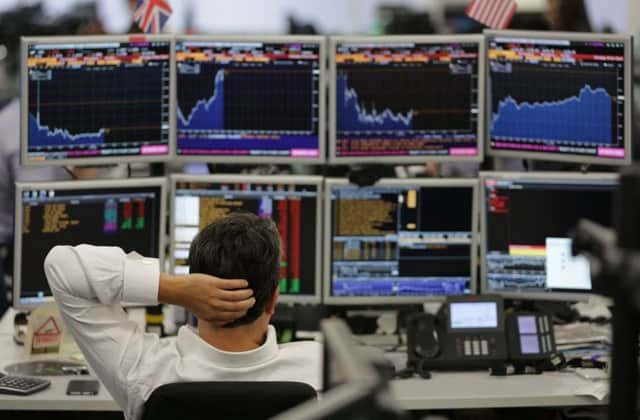Malcolm Parkin: Casino table is rigged to favour global gamblers '“ and we pay


In all matters of finance, whatever happens is decided by global brokers and traders, and the bankers who finance them.
They are in a position to make money no matter which way the markets move and their fiscal power overwhelms any government actions. What the traders and their money men do has more effect on the hapless electorate than any legislation.
Advertisement
Hide AdAdvertisement
Hide AdThe world of commodities – the derivatives market if you like – ensures that the price of everyday foodstuffs is heavily influenced by the global speculations of traders, who make money in the rising or falling of those markets, whose movements they can control by the sheer size of their trades.
Other essentials, such as building materials – metals, cement and even timber – suffer a similar fate. Sometimes these trades are orchestrated so that the rise and fall of prices allows groups acting in collusion to make money from what amounts to a sure thing.
Oil in particular is a speculator’s paradise. It has been reckoned that diesel and petrol pump prices are 10 per cent higher than they need to be because of the meaningless and unproductive activities of those traders, who make so-called profits for what amounts to no more than gambling on certainties. In reality, the assets of the world have become gambling chips in a casino for the mega-wealthy. The price of everything we need is either set or influenced by those who play in that casino. If their bets are lost, the government allows the Bank of England to print money to cover those losses. It’s called quantitative easing so that it can be sold as being of benefit to the man in the street, which it certainly is not.
So far some £375 billion has gone to the banks, with the idea that it will pass into the economy. Of course, the banks have simply used it to patch up their balance sheets and to settle the adverse market positions of their trader friends.
It will probably pay for some bonuses as well and favoured customers will be able to borrow more to expand their casino activities.
Hence the creation of markets in fine art, antiques, and classic cars, none of which had existed until the advent of quantitative easing.
For the powerless citizen, this simply reduces the value of money already in circulation and damages the pension expectations of those who have worked hard all their lives, by reducing yields on gilts and government securities.
For any government to think that it can control the economy without controlling the banking system and their pals, the global speculators, is to misunderstand how the world really works.
Malcolm Parkin is a retired business adviser. He lives in Kinnesswood, Kinross-shire.